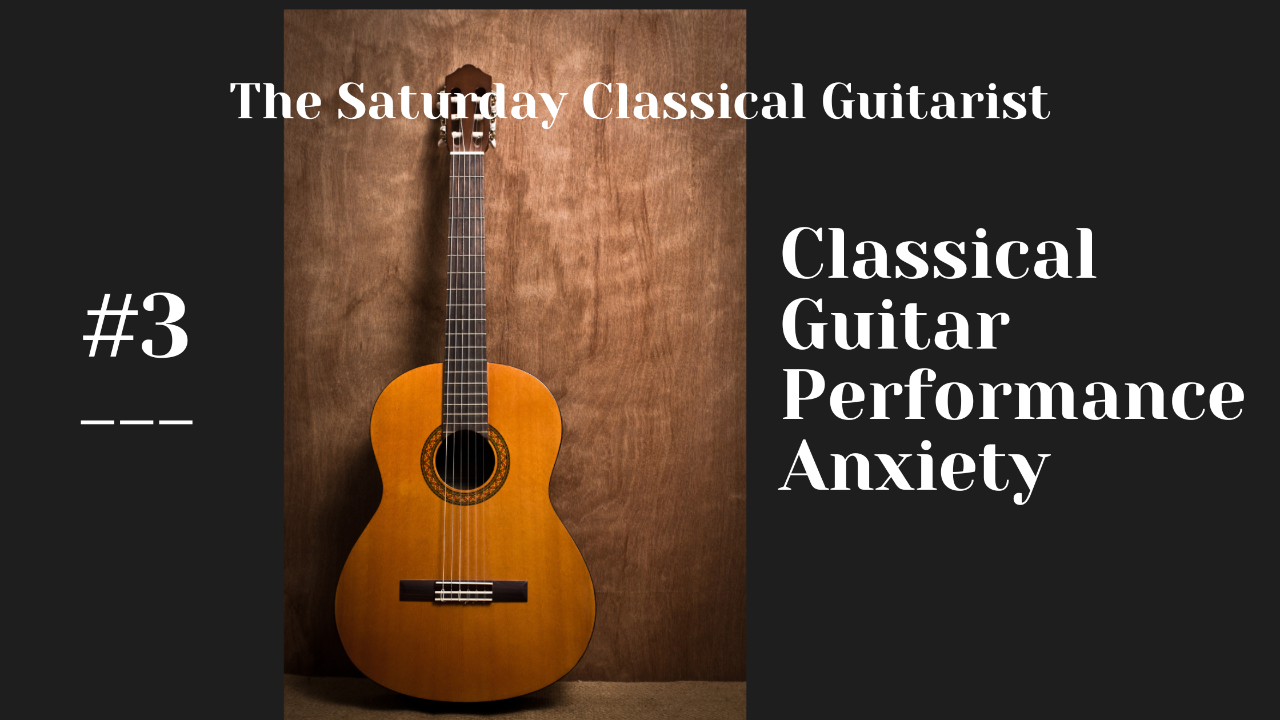
Classical Guitar Performance Anxiety
Apr 11, 2024Picture this. You’re playing guitar in front of a group of people. At first it’s going well, but then performance anxiety kicks in. Your pulse races. Your stomach is in knots. Your mind is swirling with all kinds of negative thoughts. Suddenly, you aren’t sure which end of the guitar is which.
Why do you play well at home but struggle to play in front of other people?
While learning a piece securely at home is a foundation, it’s not enough. Here are a few strategies that can help:
- Start by simulating a performance at home. Go to a different area of your home or face a different direction. Record yourself (audio or video). During your simulated performance, walk on “stage” and play from beginning to end without stopping. Then walk off stage. Watch or listen to the recording.
- Next, perform for one person or a few people. It is helpful to start with a small audience before performing for a larger one.
- Breathe. Take a few deep breaths before going on stage. I recommend box breathing, which involves breathing in for 4 counts, holding for 4 counts, breathing out for 4 counts, and holding for 4 counts. Repeat this cycle at least 5 times before going on stage. While performing, notice if you are holding your breath. If so, slowly and intentionally breathe out.
- Cultivate positive thoughts. Develop short phrases like “enjoy the music” and “quiet mind”. Use these to redirect your focus if anxious thoughts come to mind.
- Be in the moment. Ultimately, you want your focus to be the next measure you will play, not what you have already played or what you will play later.
Treat each performance opportunity as an experiment. Identify one coping strategy to try in the performance. This could be box breathing beforehand, breathing out regularly during the performance, positive thoughts, being in the moment, or another strategy. Record yourself performing (audio or video).
Do NOT evaluate how things are going during the performance. Just seek to be in the moment and enjoy the music.
As soon as the performance is over, regardless how it went, celebrate having shared music with others! I learned this from Pepe Romero. Immediately after the performance is NOT the time to beat yourself up about anything that wasn’t perfect. Realize that getting up in front of others is a win in and of itself.
The day after the performance, when any intense feelings you had about the performance have subsided, you can review the recording more objectively and see what you think. Ask yourself at that point whether the coping strategy helped. It may be worthwhile to try the same coping strategy at multiple performances before concluding it does not work. Coping strategies need to be practiced just as technique skills need to be practiced.
Over time, you will learn how to put yourself into the mental and physical state where you enjoy sharing music with others.
Keep making music!
Struggling With Sloppy Chord Changes?
Get my free guide: 7 Steps to Play Smoother Chord Changes